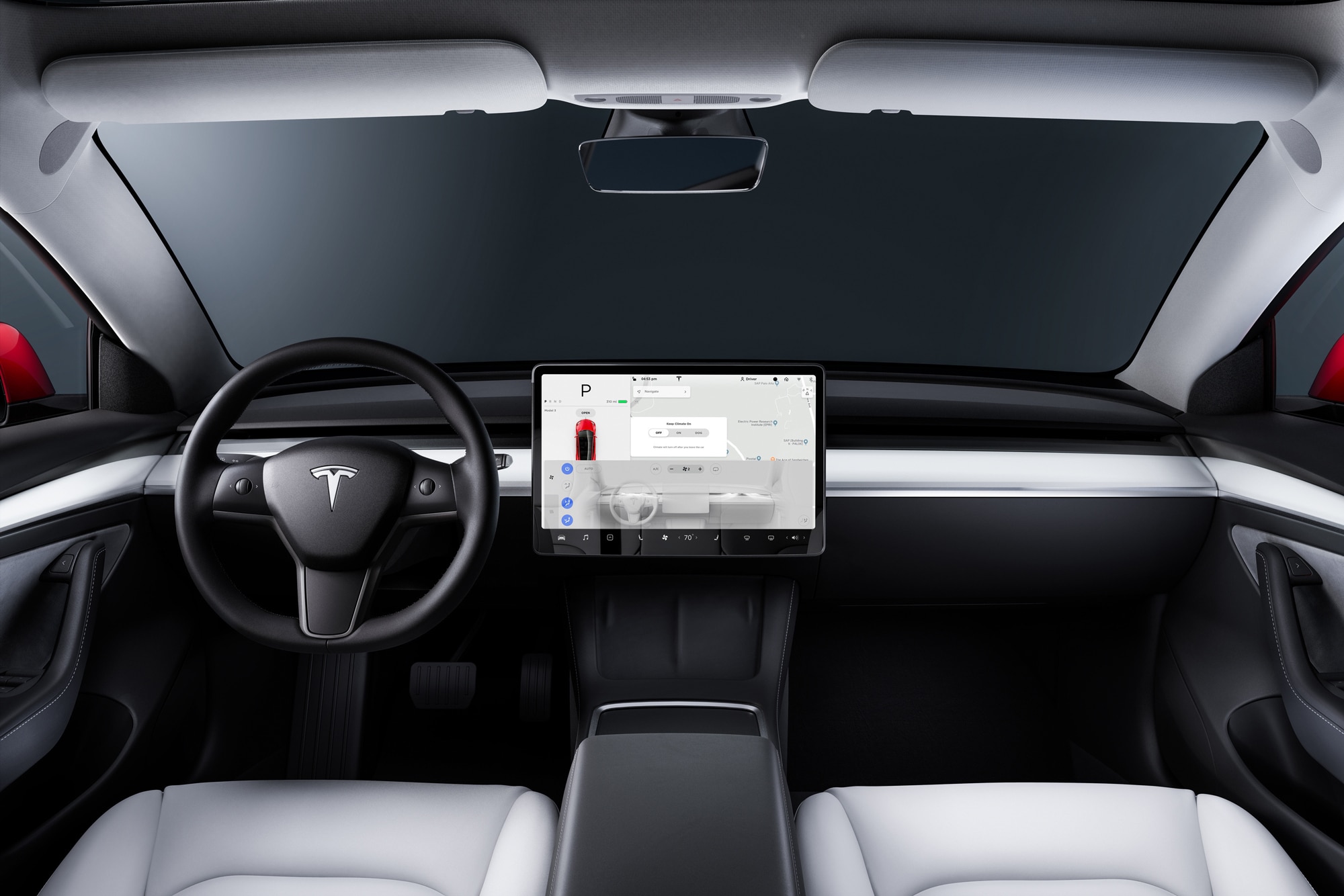Over-the-Air Updates Can Make Your Car Quicker, More Efficient, and Smarter
Updating your phone wirelessly is standard practice these days, and the technology is coming to cars, as well.
 Tesla
Tesla
We are well past the time when the car you buy remains the same car you purchased. These days, a new connected car might be updated with enhanced features overnight. This technology, called an over-the-air (OTA) update, is available on vehicles from many manufacturers even if the implementation details differ between brands.
What are Over-the-Air Updates?
Before the advent of cellular communications and in-car data antennas, the auto industry relied on a visit to the dealer and a digital link to transfer new information to a car. Thanks to connected cars, automakers can now send either software or firmware updates directly to a vehicle. Software updates to adjust things like the navigation system or a touchscreen interface are common. Firmware updates, which change things at a deeper level, require more security and may not be available on all vehicles that can provide basic OTA updates.
What Can Over-the-Air Updates Do?
Automakers commonly use OTA updates to change vehicle settings, keep navigation systems current and to fix bugs. Sometimes, OTA updates are more for fun, like when Tesla adds video games that can be played when the car is parked. More integral updates Tesla has added or changed via OTA updates include improvements to the way the battery's estimated range is calculated and the way visualizations of other vehicles appear on the dash.
OTA updates can also affect vehicle performance, particularly for electric cars. For instance, a 2021 update for the Polestar 2 electric vehicle improved passing acceleration and its 0-60 mph time by modifying how the computers control battery power output. Ford tweaked electronic stability system calibration on the Mustang Mach-E to improve its grip, too.
OTA updates can even handle large data dumps. Hyundai, for example, keeps its navigation maps current using a differential update technology that only downloads changes in the data.
Can My Car Get Over-the-Air Updates?
The owner’s manual is the best place to determine a car's ability to receive OTA updates. If you’ve had an OTA update-capable car, you may have noticed an update download prompt on the touchscreen, too.
Many newer cars contain a built-in cellular or Wi-Fi antenna that, when connected to a network, can download updates automatically.
For instance, Volkswagen’s EVs like the ID.4, will automatically download new updates and then prompt the driver to actually install them whenever they can keep the car locked and parked for around 15 minutes. If something goes wrong however, VW recommends a visit to the dealership. Some things never change.
Written by humans.
Edited by humans.
 Sebastian Blanco
Sebastian BlancoSebastian Blanco has been writing about electric vehicles, hybrids, and hydrogen cars since 2006. His first green-car media event was the launch of the first Tesla Roadster in 2006, an event where he almost elbowed Arnold Schwarzenegger in the groin. Since then, he has been tracking the shift away from gasoline-powered vehicles and discovering the new technology's importance not just for the auto industry, but for the world as a whole.
Related articles
View more related articles